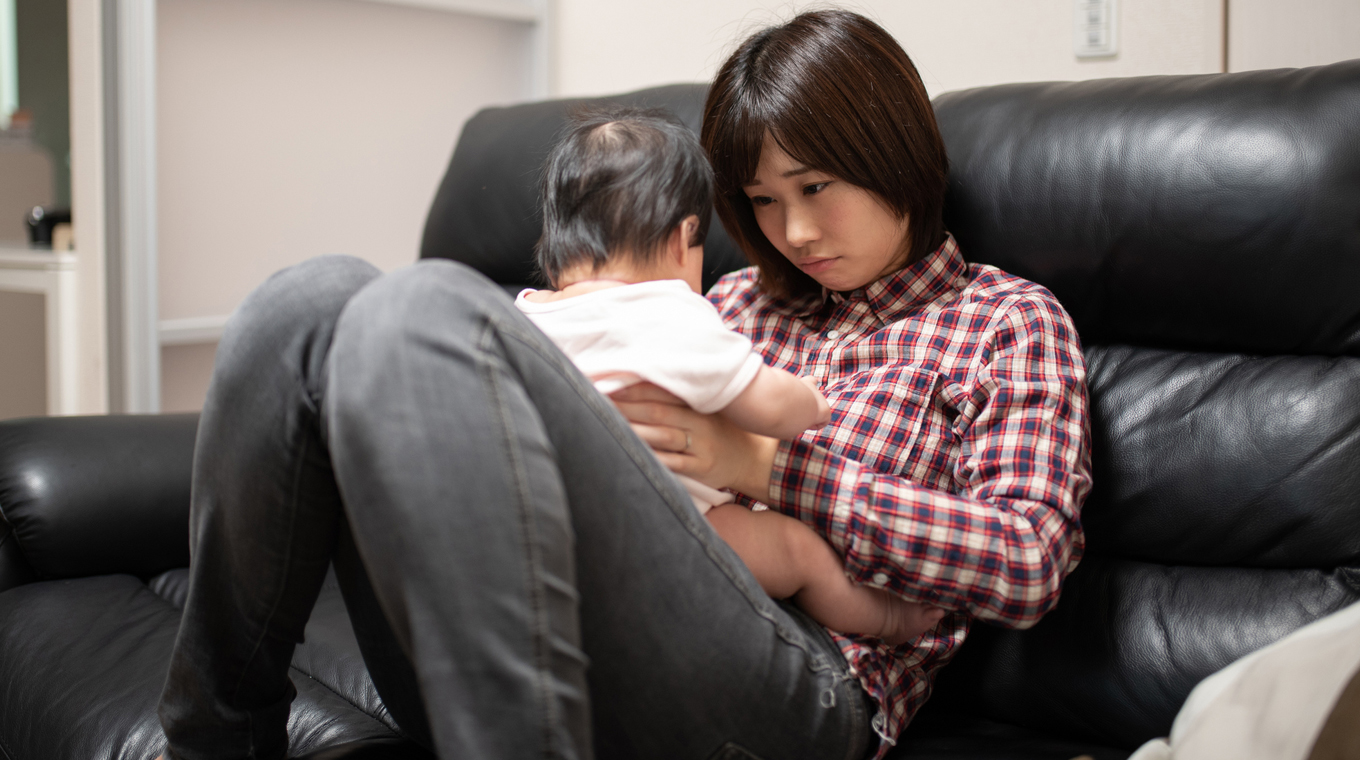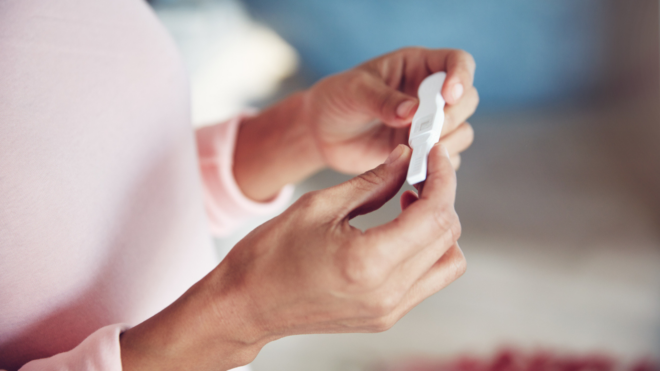
in this article
“The baby touched the shopping cart and put her fingers on her mouth!” “Am I choosing the right baby formula?” “What if the croup is actually pneumonia?” Anxious thoughts like these are normal if they are occasional — they’re simply part of being a mom. But for some of us, these thoughts can morph into a full-blown anxiety attack! How to treat anxiety becomes an important question to ask ourselves.
What is anxiety: Anxiety attack symptoms and how it’s different from depression

What is anxiety, really? It is the “intense, excessive and persistent worry and fear about everyday situations” which can develop into anxiety disorders, according to the Mayo Clinic. Often, anxiety disorders can manifest in an anxiety attack — something we might brush off as just needing a moment.
But anxiety attacks (or panic attacks) are real. These anxiety attack symptoms include: elevated heart-rate, nausea, dizziness, trembling, and chest pain. “[The] pain will typically stay in the chest,” Dr. Mistyann-Blue Miller, MD told the Cleavland Clinic, adding that it’s often “sharp or stabbing.” A panic attack could last a few minutes to an hour.
In general, anxiety is focused around feelings of worry and helplessness. Depression, on the other hand, is centered more on feelings of sadness and loss of interest in things you once enjoyed.
Getting help: Therapy, medication, and natural remedies for anxiety

Remember, anxiety is not a condition to be embarrassed nor ashamed about. The medical community has targeted therapies and safe medications to help us.
Cognitive Behavioral Therapy and Dialectical Behavioral Therapy are two psychosocial treatments recommended by Dr. Venuto of the online therapy site, Zencare’s. Sometimes medication would be paired with these therapies as needed by the patient. Just don’t forget to let your healthcare provider know if you’re breastfeeding so that they can adjust your medication accordingly. With the right therapies, experts estimate that postpartum anxiety lasts about 8 to 12 weeks.
Natural remedies for anxiety are aplenty as well. “I recommend starting light exercises like yoga early in the postpartum period,” says Dr. Susan Park, also from Zencare, “and to leave the house once a day for fresh air.” She also stresses the importance of other forms of self-care such as getting adequate sleep or connecting with your partner.
A preliminary study looking at the effects of essential oils (specifically, rose otto and lavandula angustifolia) on anxiety levels with postpartum women also looks promising. Certain teas, such as chamomile, have a calming effect on your mind and body as do some supplements like valerian root.
Note: Make sure to check with your doctor before starting on any therapies or medications — this applies to herbal supplements, teas, or essential oils, too — especially if you’re pregnant or nursing. Also, check with your pediatrician before using any aromatherapy oils around children.
Pregnancy and anxiety: Before, during & postpartum plus anxiety assessment

Look around and you can see that mothers are especially vulnerable to anxiety before, during, and post pregnancy.
Anxiety can also skyrocket at the pre-pregnancy stage if getting pregnant is a challenge. “Women with infertility have the same levels of anxiety and depression, as do women with cancer, heart disease and HIV,” writes Dr. Fadi Yahya for the Mayo Clinic.
Once pregnant, modern medicine has given mothers lots to worry about — tests for both mom and fetus abound during the first trimester which is when anxiety levels can be highest because of changing hormones.
Postpartum anxiety, however, has received more attention in the medical community than anxiety during pregnancy. Studies have found the prevalence of postpartum mothers with anxiety to range from 13% to a whopping 40%. Yet many pregnant mothers are unfamiliar with the signs of postpartum anxiety, or know they can ask for a postpartum anxiety assessment with a doctor.
Some signs of perinatal and postpartum anxiety include:
- Being ‘on guard’
- Having a sense of dread that something bad will happen
- Fear that harm will come to the baby
- Difficulty stopping checking or doing things over and over
- Racing thoughts making it hard to concentrate
Remember, the above are all normal worries and actions that mothers go through once in a while. The key question we need to ask ourselves is how often we engage with these thoughts and behaviours.
Ultimately, anxiety is something many, many mothers struggle with. Whether you’re thinking of getting pregnant or three years postpartum, your anxious feelings are valid. What’s important is to keep in touch with your healthcare provider about your mental health, and find friends to talk about your challenges.
One mom, who struggles with anxiety, sums it up best. “I’m not alone and that I’m in good company,” Sunny Chanel previously told Mom.com. “And it reminds me that not all anxiety is necessarily bad; it’s just how you handle it and manage it.”



